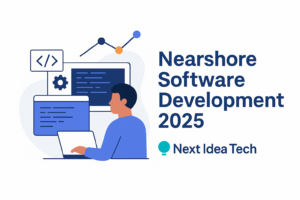When it comes to finding the right Ruby developer for your team, pre-screening questions are key. They help you assess a candidate’s skills, experience, and work ethic before committing to a full interview. With the IT industry experiencing rapid growth, competition for top talent is fierce. That’s why it’s essential to have a thorough pre-screening process in place to ensure you’re getting the best fit for your company. In this ultimate guide, we’ll provide a list of Ruby developer screening questions to ask during the pre-screening process.
Hire the best developers in Latin America. Get a free quote today!
Contact Us Today!In this ultimate guide, we’ll provide a list of pre-screening questions to ask Ruby developers to ensure you’re getting the best fit for your company. These questions will cover a range of topics, including work experience, career prospects, work ethic and style, responsibilities and organization skills, and their interest in your company.
Table of Contents:
- Work Experience & Career Prospects Questions
- Work Ethic & Style Questions
- Responsibilities & Organization Skills Questions
- “Why This Company” Questions
- Ruby-Specific Questions
- Motivation Questions
Work Experience & Career Prospects Questions:
- What is your technical background and how does it relate to your duties as a Ruby developer?
- Can you describe your responsibilities at your most recent job?
- How many programming languages have you worked with, and how proficient are you in Ruby specifically?
- What are your goals for further professional development?
- Can you share a project that you found particularly rewarding and why?
Work Ethic & Style Questions:
- What type of work environment helps you perform at your best?
- Do you prefer working independently or as part of a team?
- Can you walk us through your typical workday and the types of tasks you typically handle?
- How do you prefer to be managed?
- What are you looking for in a job, and how do you see this role helping you achieve your career goals?
Responsibilities & Organization Skills Questions:
- What software development process do you use most often and why?
- How do you plan and prioritize your projects, and do you have experience working on multiple projects at once?
- How can you apply your existing skills and knowledge to this specific role?
- What roles did you fulfill in previous positions that will be beneficial for this role?
- What tools or technology do you use to manage projects and stay organized?
“Why This Company” Questions:
- Why are you interested in working for our company specifically?
- What about our company culture resonates with you?
- How do you see yourself fitting in with our team and contributing to our goals?
- Can you share any examples of how your past experience aligns with the values of our company?
- What do you think sets our company apart from others in the industry, and why is that important to you?
Ruby-Specific Questions:
- Can you provide examples of your experience working with Ruby on Rails?
- How do you stay up to date with the latest developments and trends in the Ruby community?
- Can you share a problem you encountered while working with Ruby and how you approached solving it?
- How do you debug Ruby code, and what tools do you typically use for this purpose?
- Can you provide examples of your experience working with APIs and integrating them with Ruby applications?
Motivation Questions:
- What made you become a developer?
- This question will give you an insight on what motivates the candidate to continue working as a developer.
- Are they naturally curious about solving problems?
- Do they have a passion for software and technology?
- How did they get into the world of software development?
By asking a mix of general and Ruby-specific questions, you’ll get a well-rounded understanding of a candidate’s skills, experience, and fit for your company. It’s important to optimize the content of your pre-screening process for SEO by including relevant keywords and phrases, as well as using a subject matter expert tone. By following these guidelines and using the questions provided, you’ll be well on your way to finding the perfect Ruby developer for your team.




